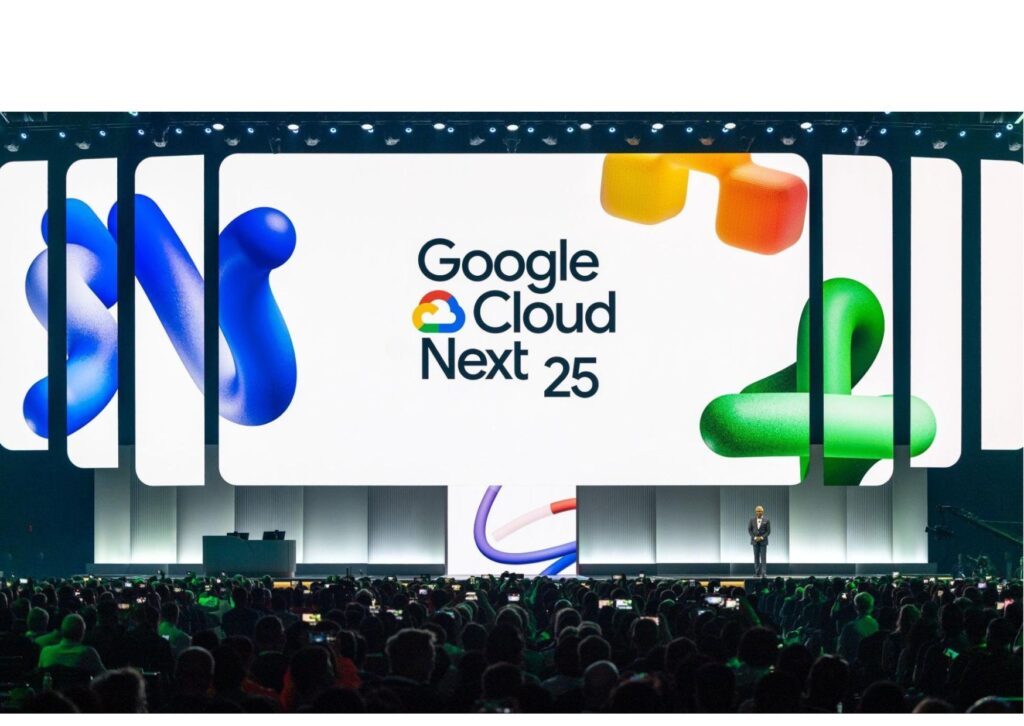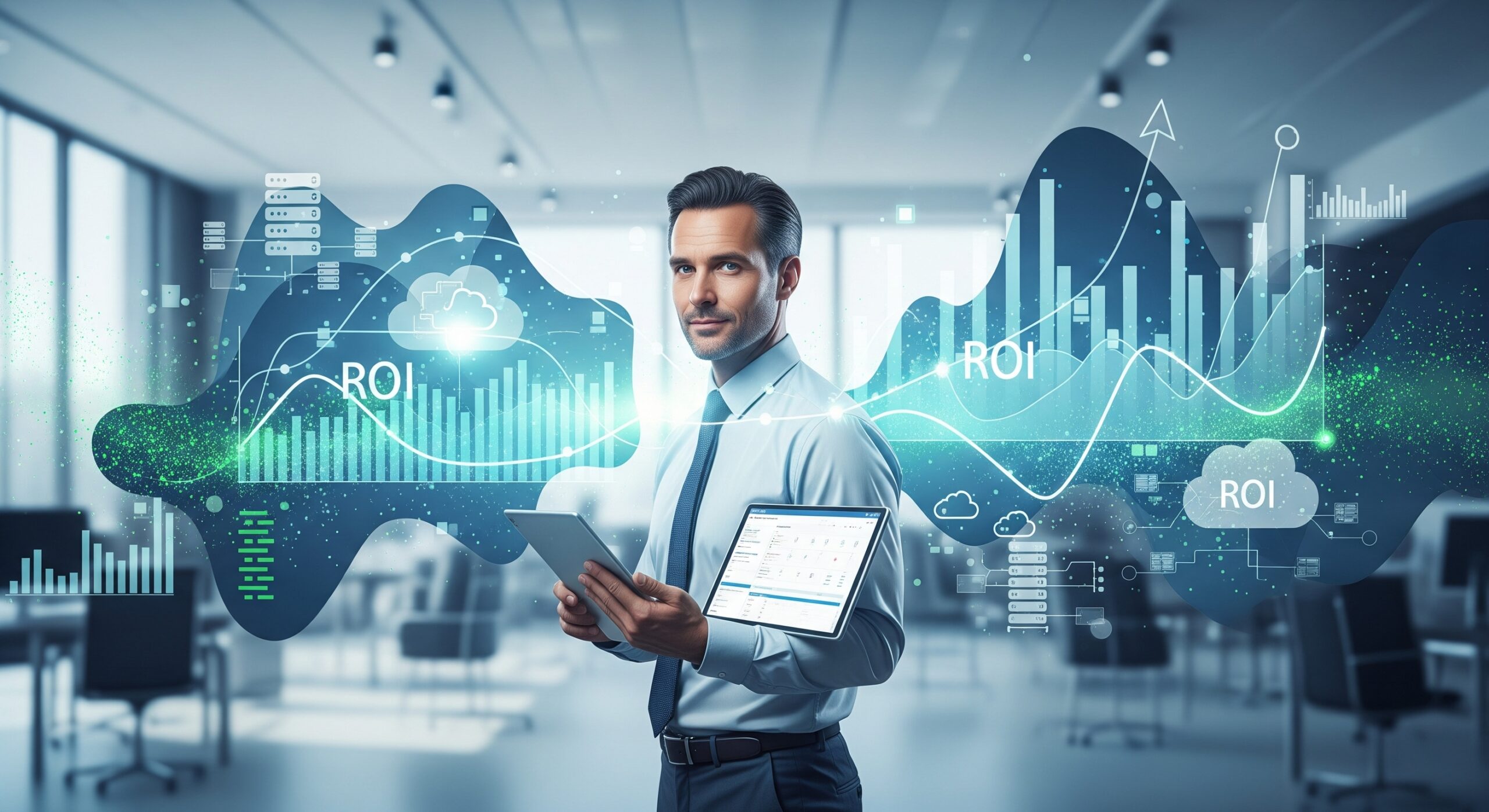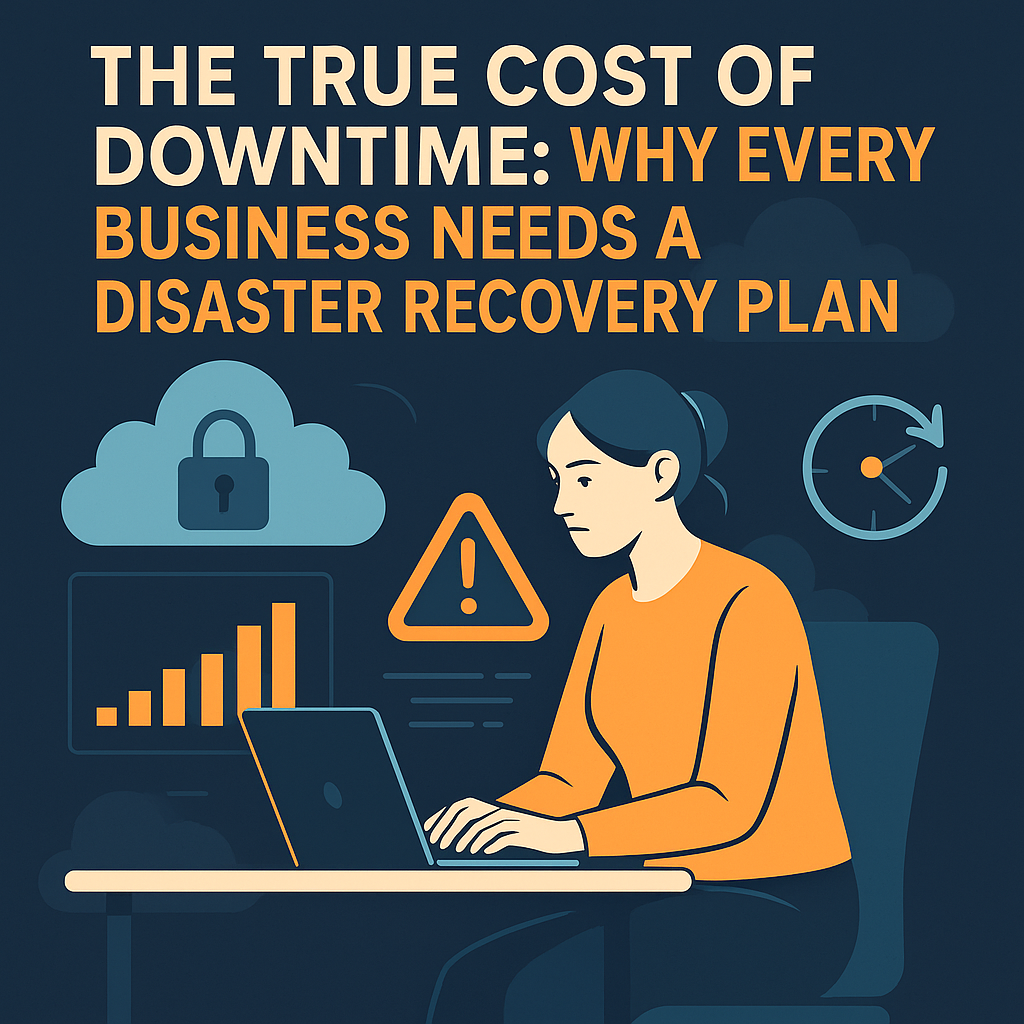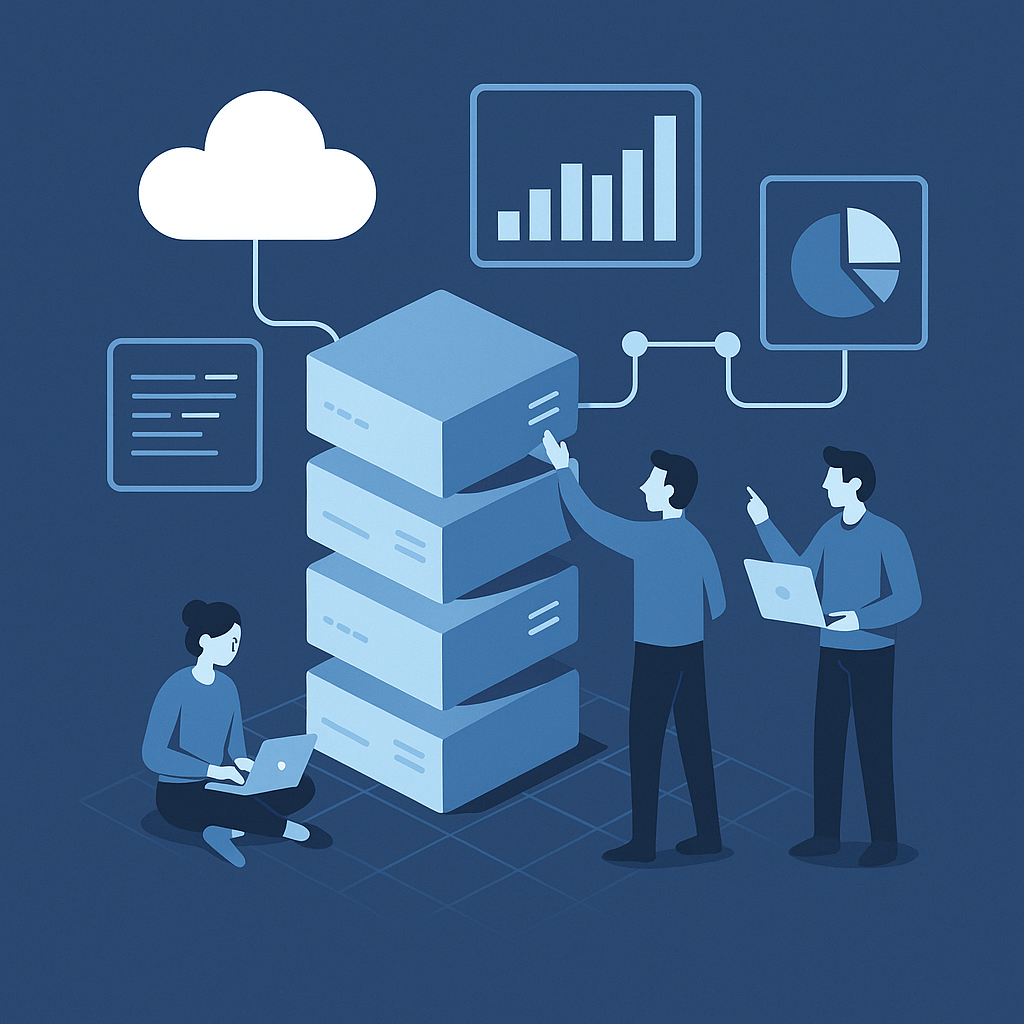
Transcloud
April 15, 2025

April 15, 2025
Google Cloud Next 2025, held in Las Vegas from April 9 to 11, brought together industry leaders, developers, engineers, and business professionals from around the world. The event was a showcase of cutting-edge cloud technologies, groundbreaking AI advancements, and real-world applications that are reshaping industries across sectors. With keynote sessions, hands-on labs, customer success stories, and over 700 breakout sessions, this year’s event focused heavily on making AI practical, scalable, and secure for businesses of all sizes.
Day 1: Pioneering the Future of AI Infrastructure
Keynote Speakers :
Thomas Kurian – CEO, Google Cloud (Highlighted Google Cloud’s commitment to AI infrastructure)
Sundar Pichai – CEO, Alphabet and Google (Spoke about responsible AI adoption across sectors)
Key Highlights:
Thomas Kurian introduced Google Cloud’s vision for an AI-native infrastructure, built for scalability, security, and performance. Sundar Pichai focused on democratizing AI and ensuring it’s ethically deployed across industries like healthcare, automotive, finance, and manufacturing.
Product Announcements:
TPU v5p and Ironwood TPU: The Ironwood TPU offers a massive 42.5 exaflops per pod, empowering large-scale AI model training and inferencing. This new custom AI hardware is designed for high-throughput, low-latency workloads and provides scalable performance for next-gen LLMs and generative AI.
Gemini 2.5 Pro and Flash: Google unveiled these advanced AI models with longer context windows, multimodal understanding, and performance boosts for enterprise use cases. Gemini Flash is designed for low-latency tasks, making it ideal for customer-facing AI agents.
| Feature | Gemini (Old) | Gemini 2.5 Pro (New) |
|---|---|---|
| Context Window | 32K – 128K tokens | Up to 2 Million tokens |
| Modality Support | Text-only or limited image support | Full multimodal (text, image, code, audio) |
| Speed & Latency | Moderate | Significantly faster, optimized for low latency |
| Use Cases | Chat, code help, doc summaries | Enterprise agents, deep research, advanced content creation |
| Integration | Workspace (basic) | Deeper integrations with Workspace, Agentspace, and 3rd-party tools |
| Accuracy | Good | Better memory, improved contextual understanding |
| Availability | Public (with limits) | In preview, broader rollout expected |
New Distributed Cloud Platform: Built for air-gapped and regulated environments, ideal for government agencies, defense, and industries with strict compliance needs. This hybrid solution enables AI workloads to run even in offline environments.
Live API: A new addition to Gemini 2.5, Live API allows developers to call live data from real-time environments, databases, and tools, significantly expanding Gemini’s dynamic reasoning capabilities.
Agent Garden: Google launched Agent Garden, a curated collection of prebuilt, enterprise-ready agents built using Gemini and the Agent Framework. It enables businesses to rapidly deploy agents for use cases like HR support, sales automation, and IT operations
Veo AI: The keynote also featured Veo AI, Google DeepMind’s next-gen generative video model. It supports full 1080p rendering, realistic movement, and cinematic coherence—paving the way for advanced storytelling and marketing applications.
Special Event:
A dazzling 16K visual recreation of The Wizard of Oz using Google DeepMind’s Veo 2, showcasing generative video AI in action at The Sphere.
Day 2: Equipping Developers and Engineers with Advanced Tools
Keynote Speaker:
Jeff Nelson – Developer Advocate, Google Cloud (Focused on equipping developers for the AI age)
Key Highlights:
The second day emphasized developer empowerment, unveiling tools to help build autonomous AI agents, accelerate cloud-native development, and ensure interoperability.
Product Announcements:
Agent Framework & Agentspace: A comprehensive ecosystem including Agentspace (a hosted platform for agents) and Agent Development Kit (ADK) for deploying intelligent autonomous agents. These platforms make it easier for developers to orchestrate multi-step agent workflows with real-world integration.
Agent2Agent Protocol: A new open-source communication standard, enabling secure collaboration between agents on complex tasks. It supports cross-platform workflows and standardized agent behavior across cloud environments.
Agent Designer: A no-code agent builder, part of Agentspace, was introduced to enable non-technical users to design, test, and deploy AI agents through an intuitive drag-and-drop interface.
Agent Gallery: Google also released Agent Gallery, a community-driven portal for sharing, discovering, and rating agents built on the platform, encouraging innovation and reuse.
Gemini Code Assist: A rival to GitHub Copilot, this AI assistant enables natural language-based coding, integrates with enterprise security policies, and supports multi-step, multi-file workflows. It’s deeply integrated into IDE environments and supports context-aware code generation.
Vertex AI Enhancements: Introduced fine-tuning and retrieval-augmented generation (RAG) with enterprise data, hosted in secure sandboxes to meet compliance and privacy requirements. These improvements help organizations customize foundation models and ensure responsible AI adoption.
Imagen 3: Unveiled as Google’s latest text-to-image generation model, Imagen 3 creates highly detailed, realistic visuals with improved prompt alignment and finer artistic control compared to its predecessor.
Chirp 3: The upgraded Chirp 3 model provides multilingual speech recognition with higher accuracy in low-resource languages and supports real-time transcription for customer support, meetings, and media.
Day 3: Enhancing Security, Workspace Productivity, and AI-First Collaboration
Keynote Speaker:
Jensen Huang – CEO, NVIDIA (Shared a pre-recorded address on AI collaboration and compute acceleration)
Key Highlights:
Day 3 spotlighted how AI is transforming collaboration, productivity, and cybersecurity.
Product Announcements:
Workspace AI Enhancements:
Google Unified Security (GUS): Combines Mandiant, VirusTotal, and Chronicle with AI-powered threat detection and incident response.
Custom Engagement Suite: A new set of tools for building personalized customer interactions using AI agents across websites, chat apps, and call centers. It integrates with Vertex AI and CRM platforms for real-time insights and response orchestration.
Customer Support for Partner Agent: Google introduced Partner Agent integration, allowing certified partners to offer AI-based customer support bots that leverage Google’s infrastructure but are customized by resellers for their client base.
Day 4: Real-World Impact and Ecosystem Expansion
Keynote Speakers:
A series of customer leaders from industries like retail, automotive, and telecom shared their digital transformation journeys.
Key Highlights:
The final day celebrated real-world implementations of Google Cloud solutions. These sessions focused on how enterprises are using Vertex AI, BigQuery, Gemini models, and Google Kubernetes Engine (GKE) to modernize infrastructure, enhance customer experience, and improve operational efficiency.
Customer Success Stories:
Partnerships and Ecosystem Growth:
Final Thoughts

Google Cloud Next 2025 wasn’t just a display of innovation—it was a strategic roadmap for businesses entering the AI-first era. From the powerful Ironwood TPUs and Gemini models, to enterprise-ready Workspace AI tools and autonomous agent platforms, Google is crafting a deeply integrated cloud ecosystem that meets the security, compliance, and performance needs of modern enterprises.
Stay tuned as these technologies begin to redefine how businesses innovate, collaborate, and secure their operations in a rapidly evolving digital world.


